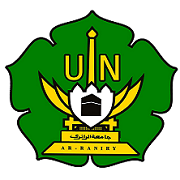The Practice of Buying and Selling During Friday Prayer in Mandailing District Natal: A Study With A Maqashid Al-Syari'ah Approach
Abstract
Islam, as a complete religion, regulates all human life. It regulates vertical ritual worship to Allah Almighty and regulates horizontal worship, namely the relationship between humans, so balance is needed in life. Humans as social creatures created by Allah need each other and cannot be separated from muamalah affairs such as buying and selling to fulfill their needs. Buying and selling is also a daily activity for everyone to meet the needs of their lives. Everyone who does buying and selling must know the law of buying and selling so that no one is harmed, especially the practice of buying and selling when Friday prayer are performed. Thus, the practice works under the provisions of Islamic law. Hablum minannas in the practice of muamalah towards fellow human beings must be in line with hablum minallah based on the guidance of Islamic law. Broadly speaking, Islamic law itself is divided into two; worship and muamalah. Muamalah is the rules (laws) of Allah Swt, intended to regulate human life in worldly affairs of a social nature. In this discussion, the author will explain the law of buying and selling during Friday prayer in Mandailing Natal Regency: a study with a maqashid al-syari'ah approach. This research is descriptive-analytical with the field study research through a normative, empirical approach. The results of this study is that the law of buying and selling that reaches the degree of urgency during Friday prayer is permissible with the aim of more significant benefit, namely protecting the soul (hifdzun an-Nafs) and (hifdzun al-Aql). This law applies in buying and selling medical drugs at pharmacies, hospitals, and other vital objects.
Keywords
Full Text:
PDFReferences
Abdurrahman al-Jaziri. Fiqh Empat Mazhab. Jakarta: Darul Ulum Press, 2011.
Al-Kasyani, Alaudin. Bada’i Ash-Shanai’ Fi Tartib Asy-Syarai’. Beirut: Dar al-Kutub al-’Ilmiyyah, 1998.
Al-Mawardi, Abi al-Hasan bin Muhammad al-Habib. Al-Hawi Al-Kabir Fi Fiqhi Mazhab Al-Imam as-Syafi’i. Bairut: Dar al-Kutub al-’Ilmiyyah, 2003.
Al-Sijistaniy, Abu Dawud Sulaiman Ibn al-Asy’at. Sunan Abu Dawud. Riyadh: Dar as-Salam, 1999.
As-sijistani, Ibn Jarir al-Thabari. Tafsir At-Thobari: Jami’ul Bayan ’an Ta’wil Ayat Qur’an. Bairut: Dar al-Kutub al-’Ilmiyyah, 2002.
Enang Hidayat. Fiqih Jual Beli. Bandung: Remaja Rosda Karya, 2015.
A.Djazuli. Kaidah-Kaidah Fikih (Kaidah-Kaidah Hukum Islam dalam Menyelesaikan Masalah-Masalah Yang Praktis). Jakarta: Kencana Prenada Media Group, 2006.
Habibullah, Eka Sakti. “Prinsip-Prinsip Muamalah dalam Islam.” Ad Deenar: Jurnal Ekonomi dan Bisnis Islam 2, no. 01 (March 31, 2018): 25. https://doi.org/10.30868/ad.v2i01.237.
Hasan Ali. Berbagai Macam Transaksi Dalam Islam ( Fiqih Muamalah ). Jakarta: Persada, 2004.
Ibn Taimiyah. Maqasidus Syari’ah. Riyadh: Dar ibn al-Jauzi, 2001.
Ibnu Qudamah al-Maqdisi. Al-Mughny ‘ala Mukhtasar Al-Kharqy. Juz III. Beirut: Dar al-Kutub al-’Ilmiyyah, n.d.
Imam Abi Husen Muslim bin Hajaj. Shahih Muslim. Beirut: Dar Al-Fikr, 1992.
Imam Ahmad bin Muhammad bin Hanbal. Al-Musnad al-Imam Ahmad Ibn Hanbal. Cairo-Mesir: Darul Hadist, n.d.
Imam Al-Hafidz Ibnu Hajar Al-Asqalany. Bulughul Maram. Jakarta Selatan: Noura, Mizan Publika, 2012.
Kementrian Agama Republik Indonesia. Al-Qur’an Dan Terjemahnya. Al-Qur’an Dan Terjemahnya, 2010.
Khalaf, Abdul Wahhab. Kaedah-Kaedah Hukum Islam. Bandung: Risalah, 1985.
Lili Rasyidi. Dasar-Dasar Filsafat Hukum. Bandung: Citra Aditya Bakti, 1996.
Maksum, Moch. Hukum dan Etika Bisnis. Deepublish Budi Utama, 2020.
Mansyur, Zaenudin. “Implementasi Teori Maqashid Syari`Ah Asy-Syatibi Dalam Muamalah Kontemporer.” JURISDICTIE 11, no. 1 (June 3, 2020): 67. https://doi.org/10.18860/j.v11i1.7675.
Muhammad As-Sabuni. Tafsir Ayatul Ahkam. Jilid II. Kairo: Dar Ash Shabuni, 2007.
Muhammad bin Ismail al-Shun’ani. Subulus Salam. Jilid III. Surabaya: Amelia, 2015.
Muhammad Nashiruddin a-Albani. Shahih Sunan Ibnu Majah. Riyadh: Dar as-Salam, 1997.
Pengurus Besar Ikatan Dokter Indonesia. Kode Etik Kedokteran Indonesia, Ikatan Dokter Anak Indonesia § (2012). http://www.idai.or.id/professional-resources/ethic/kode-etik-kedokteran-indonesia.
Sayyid Sabiq. Fiqh As-Sunnah. Juz 3. Beirut: Dar al-Fikr al-’Arabiy, 1983.
Syafe’i, Rachmat. Fiqih Muamalah. Bandung: Pustaka Setia, 2001.
Syaikh al-Allamah Muhammad bin Abdurrahman ad-Dimasqi. Fiqih Empat Mazhab. Bandung: Hasyimi Press, 2010.
Syaikh Sa’ad bin Nashir al-Syatsri. Syarh al-Arba’in al-Nawawiyah al-Mukhtashar. Riyadh: Dar Kunuz Isybiliya, 2009.
Takhim, Muhamad. “Saddu al-Dzari’ah dalam Muamalah Islam.” AKSES: Jurnal Ekonomi dan Bisnis 14, no. 1 (March 9, 2020). https://doi.org/10.31942/akses.v14i1.3264.
Taqiyudin, Hilman. “Konsep Etika Muamalah dalam Islam.” MUAMALATUNA 11, no. 1 (September 22, 2020): 80. https://doi.org/10.37035/mua.v11i1.3326.
Wahbah al-Zuhaili. Fiqh Islam Wa Adillatuhu. Jilid 5. Jakarta: Gema Insani, 2011.
DOI: http://dx.doi.org/10.22373/sjhk.v5i2.7575
Refbacks
- There are currently no refbacks.
Copyright (c) 2021 Asrul Hamid, Dedisyah Putra

This work is licensed under a Creative Commons Attribution-ShareAlike 4.0 International License.
Samarah: Jurnal Hukum Keluarga dan Hukum Islam has been indexed by:


















